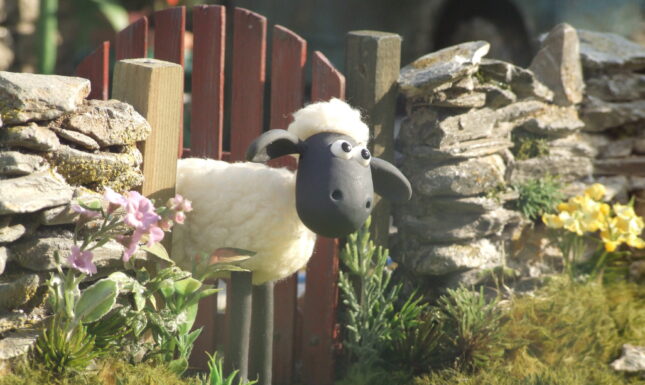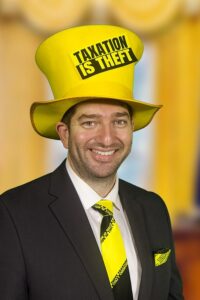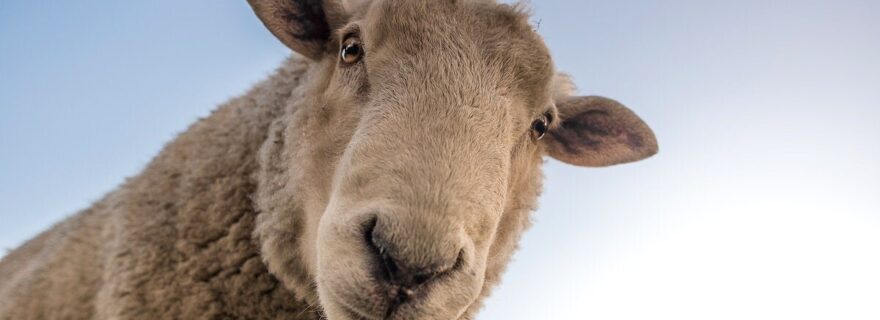Over my Dead Sheep’s Body!
As long as there have been taxes, people have tried to avoid them. Bob van Velthoven shows what a case of English window tax and an Ancient Greek anecdote can teach us about the preoccupation with paying as little tax as possible, and gives some tips on how to avoid taxes yourself this Christmas.
December 31st is a special date. Not only do people take huge joy in burning old furniture, overeating with oliebollen, and humming along with the Top2000, it is also the end of the fiscal year, and the reference date at which your income and assets are assessed for Dutch income tax. Although Christmas is best spent without worrying about personal finances, it might be beneficial to consider your possibilities to avoid taxation. For instance, in order to avoid paying more Dutch asset-based income tax (in the so called ‘box 3’), you might be tempted to buy a new car or television before December 31st, earlier than you would have needed them – but more on that later. Let us first look at two historical accounts of tax avoidance.


Contrary to tax evasion, tax avoidance is a legal, not per se immoral, and supposedly rational thing to do. Whatever the taxation rate or taxation method may be, people will always try to find a way to pay less taxes (Frecknall-Hughes 2018). A very (in)famous example of tax avoidance, caused by the valuation method, is the case of the English property tax between 1696 and 1851, which valued one’s assets by counting the windows of one’s house (cf. Oates & Schwab 2015). This calculation method had some benefits; contrary to earlier methods of taxation based on the amount of hearths inside, tax officials did not have to enter a house to make their estimation. It was, however, relatively easy to avoid this tax by bricking up your windows. This is exactly what the English (and people subjected to similar legislation) did, and today we still find the traces of where windows used to be, brick walls in aberrant colours, or even fake windows. Where tax avoidance is inherent to taxation itself, this taxation method had a negative external effect, as ‘this tax on light and fresh air’ seriously affected public health. When landlords bricked up all windows, their tenants, poor urban families, came to live in murky and damp apartments, in which typhus, cholera, and smallpox epidemics could easily spread.
A more obscure parallel for extreme tax avoidance can be found in the second book of the Oeconomica (ca. 325-300 BCE), a short ‘economic’ treatise, most likely written by an unknown student of Aristotle. The work appears to instruct early Hellenistic administrators in the technical art of ‘oikonomia’ and offers them a catalogue of 82 anecdotes in which various rulers are shown to enact unorthodox measures that boost their revenues. When Dionysius (432 – 367 BCE), overlord of the city of Syracuse in Sicily, was in dire straits he did the following:
“When he saw that citizens no longer reared sheep and cattle because of his taxes, Dionysius proclaimed that he needed no more money until a certain date, so that those who now came into the possession of any stock would not be liable to taxation. Thinking they would not be taxed, a large number of citizens lost no time in acquiring a quantity of sheep and cattle. But when Dionysius thought it was the right moment, he had them all valued and imposed a tax. The citizens were angry at his deceit, and started killing and selling their animals. When Dionysius decreed that each day only as many beasts as were needed could be slaughtered, the owners retorted by offering their animals as sacrifices, whereupon the despot forbade the sacrifice of female beasts.” (Ps.-Aristotle, Oeconomica 2.20e 1349b6-14, translation C.G. Armstrong 1935, adapted).


For my PhD research, part of Tazuko van Berkel’s VIDI project ‘From Homo Economicus to Political Animal’, I examine how these kinds of anecdotes shape and convey economic knowledge. In this anecdote, tax avoidance almost takes the form of a strategy game. Who wins is a matter of perspective: if it was Dionysius’ primary aim to temporarily stimulate citizens to acquire cattle (as the first sentence of the anecdote could suggest), Dionysius sees that re-imposing the tax will have a negative effect on the number of cows and sheep (cf. Engels 1993). In other readings of this anecdote (e.g. Zoepffel 2006), Dionysius’ primary aim is considered to be the enlargement of his income because the introduction of the treatise suggests that all anecdotes are concerned with generating more revenues. If this was his objective, Dionysius, like all other leaders in the anecdotes, is a clear winner: regardless of how many sheep may live or die, Dionysius has managed to induce his people to buy more cattle and sheep and has made it extremely difficult to get rid of them, so that they will have to keep paying taxes.

The anecdote is a great genre to explain how human behaviour works in the short term. The model of the story, however, is less suited to take long term effects into account, nor does it allow for quantification of the measures’ effects. It also does not tell us anything about negative external effects (such as a famine), as was the case with the window tax. Although Dionysius violates all principles of good governance, I do not think we should see him as ‘the bad guy’. The anecdote primarily serves the technical aim of the Oeconomica, namely to show administrators how people feel about taxes and how tax avoidance can be countered.
The citizens’ response is, contrary to Dionysius’ calculative behaviour, emotional: once they feel ‘robbed’ by the ‘government’, paying as little tax as possible seems to become a goal in itself, even if this means hurting yourself disproportionately by destroying your assets. Why would you pay taxes if you are still enjoying your meat-only diet, if your tenants can live without fresh air, or if you can avoid ‘being a thief of your own wallet’, as Dutch people beautifully say, otherwise? The answer to this question may be found in other anecdotes about city states, in which citizens collectively decide to sell large parts of their estate in order to pay into the empty state treasury, and where instead of theft, taxation is considered as a meaningful contribution to society. The belief, however, that paying taxes means a loss to us, as fostered in stories about tax avoidance, prompts us to be so obsessed about avoiding taxes.
If after reading this you are still up to avoiding income tax this Christmas, here are three wonderful tips for you that even have some positive external effects:
1. Buy delicious food during the Christmas holidays (I feel like eating lamb after writing this!).
2. Buy presents for your family and friends (Okay, you will pay VAT, but you might save a bit in box 3 and get to give presents).
3. Donate to charity (donations are fiscally deductible from your gross income).
Merry Christmas!
Bibliography:
Aristotle. 1935. Oeconomica (vol. 18). Translated by G.C. Armstrong. Cambridge MA: Harvard University Press.
Engels, J. 1993. “Zu einigen Problemen des zweiten Buches der pseudo-aristotelischen Oikonomika-Schrift.” Laverna 4: 1-25.
Frecknall-Hughes, J. 2018. “Historical and case law perspective on tax avoidance.” In The Routledge Companion to Tax Avoidance Research, ed. N. Hamsishade & Y. Epifantseva, 11-25. Abingdon/New York: Routledge.
Oates, W.E, and Schwab, R.M. 2015. “The Window Tax: A Case Study in Excess Burden.” The Journal of Economic Perspectives 29, no.1: 163–179.
Zoepffel, R. 2006. Aristoteles Oikonomika : Schriften zu Hauswirtschaft und Finanzwesen. Berlin: Akademie Verlag.
© Bob van Velthoven and Leiden Arts in Society Blog, 2021. Unauthorised use and/or duplication of this material without express and written permission from this site’s author and/or owner is strictly prohibited. Excerpts and links may be used, provided that full and clear credit is given to Bob van Velthoven and Leiden Arts in Society Blog with appropriate and specific direction to the original content.



0 Comments